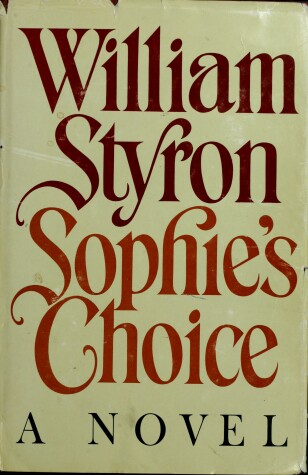Reviewed by gmcgregor on
The pair are soon reconciled, though, and Stingo is quickly drawn into their orbit. Beautiful Sophie is a Polish survivor of Auschwitz who does secretarial work for a chiropractor, and the mercurial Nathan is an American Jewish medical researcher, and Stingo falls a little bit in love with both of them as he begins to write a novel based in his experiences of the South. But another messy fight and breakup between Sophie and Nathan ultimately reveals that neither of them is exactly who they seem to be and makes their tragic end seem inevitable.
This took me unusually long to get through: not because the subject matter is tough, even though it is, but because the book is just dense. Styron's prose tends towards the purple, and while usually I'm down with books that are on the overwritten side, it's a lot, you guys. It feels like the writing is struggling against the story, almost, trying to keep it from sweeping over the reader. There are plenty of remarkable passages, but the ratio of those to portions that drag isn't nearly high enough.
The story of Sophie and Nathan, when it manages to take off, is sweeping and powerful and dramatic (if a bit on the Freudian side...there's a lot of eros/thanatos stuff going on). But what grinds it to a halt is the character of Stingo. He's an obvious writer-insert character, and Styron badly overestimates how interesting the portion of the book that's devoted to his sexual frustration is. It's not only boring, it's cringe-worthy, especially the section where he jerks himself off while sharing a hotel room with his father and makes so much noise when he finishes that he wakes his dad up. I'm not going to say that no one wants to read about that because maybe someone does, but it's tonally discordant with a book that's mostly about the evils humans inflict on themselves and each other and the way we tell our own stories to try to shape the world into a way we can better cope with it. There's greatness here, but it desperately needed a better editor to cut it and make it shine like it should have. As is, it's worth reading but not something I'd honestly recommend.
Reading updates
- Started reading
- 8 October, 2016: Finished reading
- 8 October, 2016: Reviewed
